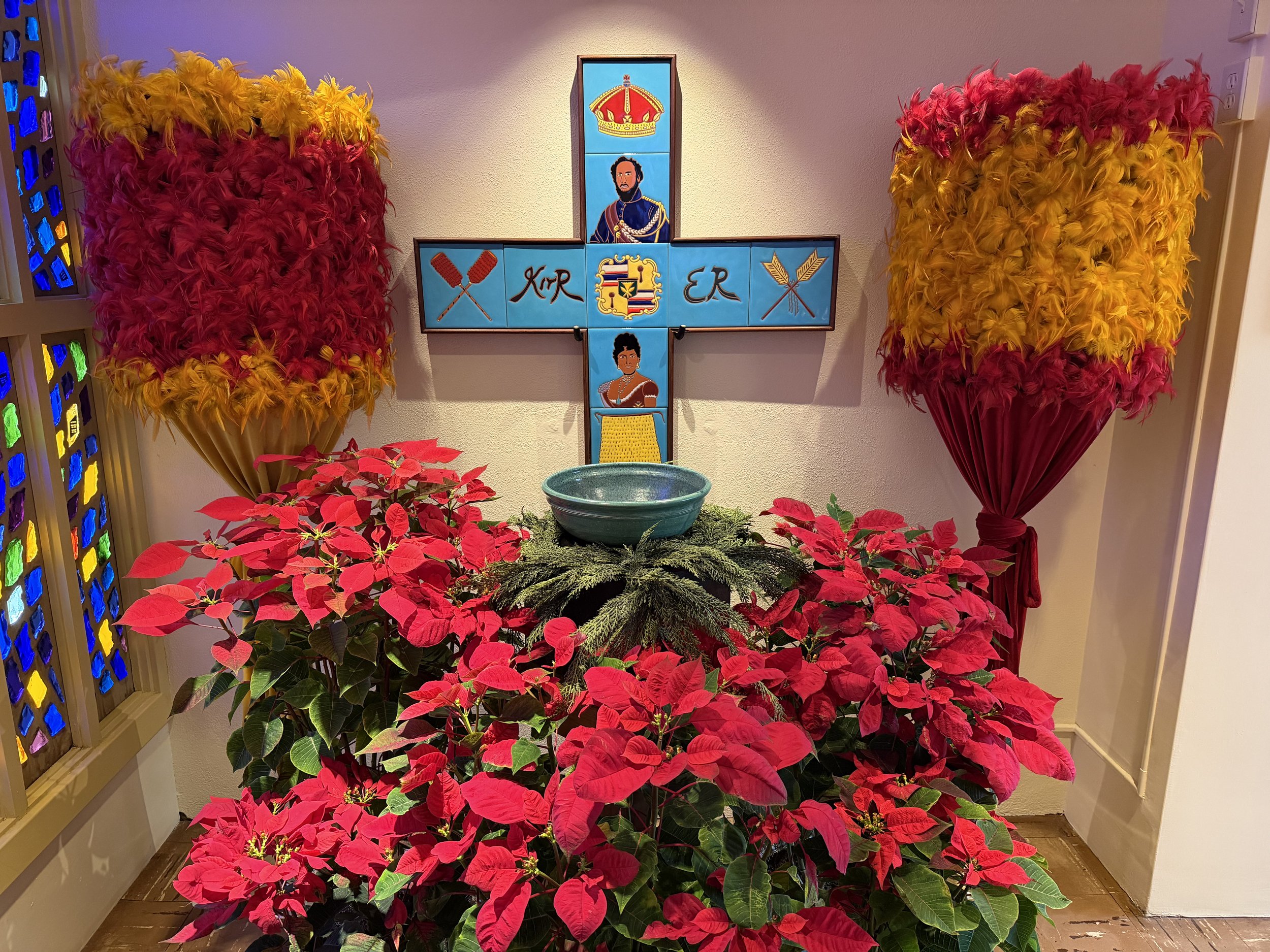From the Rector: Eastertide Liturgical Trivia
/One of the questions we always need to be asking in regard to our worship practice is, "why do we worship the way we worship?" In the Episcopal Church and in the Anglican Communion we believe that our prayer shapes our belief.
With the arrival of Easter you may have noticed some additions to our worship, the main addition being the Rite of Sprinkling at the commencement of our Sunday masses. During the Sung Mass the people are sprinkled during the Gloria, and at High Mass the people are sprinkled either during the procession, if there is one, or during the anthem entitled Vidi Aquam. The Vidi Aquam is based on a text from Ezekiel, and it is the traditional text for the sprinkling rite during Eastertide. "I saw water flowing from the right side of the temple, alleluia, alleluia."
Why do we do this Rite of Sprinkling during the season of Easter? If Lent was the season to prepare for holy baptisms, Easter is the season when we have baptisms, as well as celebrate our own baptism. Having been through the disciplines of Lent, we now rejoice in the saving waters of Christ. We celebrate how through baptism we have been initiated into new life. During Easter not only do we have smells and bells, but we also have the gentle rain of Baptism sprinkled upon our bodies each and every Sunday.
The other major change during the Easter season, beside the return of the Gloria and the alleluias, is the singing of the Regina coeli after high mass. Normally we sing the Angelus after high mass, but during Easter we sing "Joy to you, O Queen of Heaven." There is a lot I could say about the use of Marian anthems, at the end of Compline or at the end of High Mass. We could also mention how the Angelus is actually in a different category of Marian devotion than the Regina coeli is. If you want to know more about such minute details, come and talk to me personally. Suffice it to be said, most Anglo-Catholic churches after high mass sing the Angelus, except during Easter when they sing the Regina coeli. Singing the Regina coeli is one of the great joys for many people during Eastertide.
The last liturgical item to mention is a bit mundane, but nevertheless important. Have you ever noticed how having the announcements after the peace can sometimes turn into a half-time show? I try to keep the announcements short and to the point, especially because too many announcements can alienate visitors, as well as annoy regular attendees. You might ask why do we need to have the printed announcements read to us? I truly understand these sentiments, but there is a greater liturgical reason for not having announcements after the peace. The prayer book Eucharist is designed to have the confession, the peace, and the movement into Holy Communion as a smooth transition. We confess our sins, we receive absolution, we share the peace with our brothers and sisters being reconciled, and then we focus our hearts on Christ's presence among us in the Sacrament. Having the announcements after the peace disrupts this natural liturgical progression. As an alternative, this Easter season we are going to experiment with having the announcements at the end of the mass, after the blessing, but before the dismissal. We will quickly know if it feels good and proper. The best practice of keeping the announcements short will also continue to be done.
Easter Blessings,
Father Paul Lillie+







